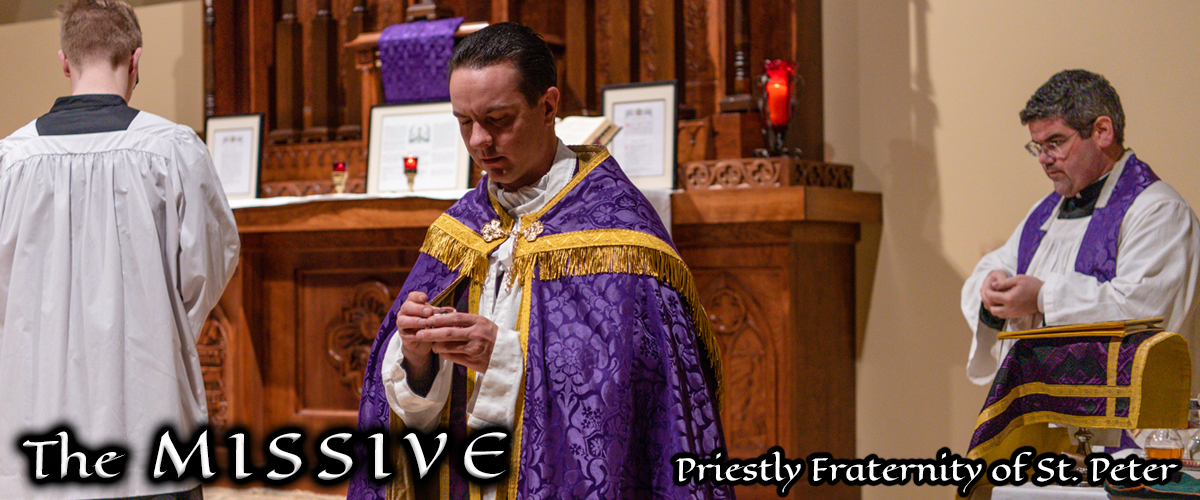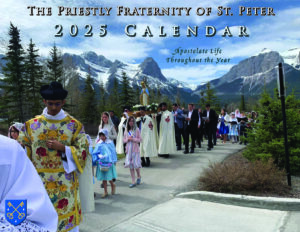Immanentism: Catholicism and Religious Experience, by D.Q. McInerny, Ph.D.
 by Dr. Dennis Q. McInerny, Ph.D.
by Dr. Dennis Q. McInerny, Ph.D.
(Originally in the April 2011 Newsletter)
Immanentism? It is probably safe to say that many a good Catholic has never even heard of the term. Presuming that to be the case, a definition is in order. For that definition I call upon the eminent French theologian Father Louis Bouyer, who defines immanentism as follows: “A tendency to understand the immanence of God or of His action in us in such a way that it would, in fact, exclude the reality of His transcendence.” How is the immanence of God to be rightly understood? (By the way, the word “immanence” comes from the Latin verb immanere, meaning “to abide within.”) The immanence of God refers to the fact that He is present in a very special way in everyone who is in the state of sanctifying grace. One is reminded in this respect of Blessed Elizabeth of the Trinity, who sought to structure her entire religious life around the sublime truth of the indwelling of the Blessed Trinity.
Immanence, then, is very much a good thing. Immanentism, on the other hand, is not at all a good thing, and that is because, by denying the transcendence of God, it of course utterly falsifies the divine nature. To deny the transcendence of God is to refuse to acknowledge the fact that He is absolutely distinct from and superior to His creatures, and the result of doing that is to end up with a knowledge which, whatever else may be said of it, is not knowledge of the one true God at all. Furthermore, to deny the transcendence of God is to undermine the rationale of immanentism itself, for “immanence” becomes meaningless if it refers to anything other than the transcendent God who dwells within us through His grace.
Father John Hardon, in writing on the subject of immanentist apologetics, refers to it as “A method of establishing the credibility of the Christian faith by appealing to the subjective satisfaction that the faith gives to the believer.” Coupled with this emphasis on the subjective, there is a downplaying of the objective criteria of our faith, even to the point of rejecting miracles and prophecies. Purely personal motives for faith, motives that have mainly to do with feelings, are given primary of place. “Religion, therefore, would consist,” Father Bouyer remarks, “entirely in the religious feeling itself.” Reason is marginalized, and the idea of belief, as being essentially the assent of the intellect, loses its currency.
Immanentism may be summed up by saying that it represents a stance of reckless subjectivism with regard to the faith. It cavalierly dismisses, as being of only secondary importance, the objective foundations of religion, as revealed to us by God Himself and as incorporated in the deposit of faith.
In 1907 Pope St. Pius X published his encyclical Pascendi Dominici Gregis, whose purpose was to sound the alarm against Modernism, which the Holy Father had defined as “the synthesis of all heresies.” And he described the Modernists themselves as “the most pernicious of all the adversaries of the Church.” In his analysis of the phenomenon, St. Pius X identified two major parts of Modernism; one was agnosticism, the other was immanentism. By agnosticism Modernism denies that man is capable of gaining a reasoned knowledge of God. Thus, with a stroke, it effectively does away with natural theology, that philosophic discipline whose principal task is to show that we can arrive at a knowledge of the existence of God through natural reason. Now, that such is possible is actually a matter of faith for Catholics, as was taught by the First Vatican Council.
Having disposed of natural theology, Modernism then proposes immanentism to explain what religious experience is supposedly all about. Human beings, the Modernists argue, are invested with a “religious sense” which wells up out of the unconscious and creates in us a need for the divine. It is in response to this need that we positively respond to ideas about the reality and nature of God which, as it happens, are comfortably conformable to our feelings. What this comes down to, in practical terms, is that the “God” to which one gives one’s allegiance is but a fiction of one’s own devising, a pseudo-being having its source nowhere else but in the demands of deep-set emotions. Here Modernism can be said to be reflecting the thought of the nineteenth century atheistic philosopher Ludwig Feuerbach, who argued that what we call God is no more than the imagined product of human longings and wishes.
The kind of attitude which is represented by immanentism is very much a part of the religious consciousness of the age in which we live, and that is because Modernism, of which it is an integral part, is not, unfortunately, a thing of the past. Immanentism, carried to the extreme, is nothing more than a wholesale abandonment of the Christian faith, for which it substitutes a bland and anemic secularism vainly trying to disguise itself under a thin veneer of religion. Because immanentism places feelings above reason, it negates the objective reality of the faith as manifested in its doctrines, doctrines which have their source in divine revelation. To state the obvious, in contradistinction to immanentism, we give our assent to this or that doctrine of the faith because we believe it to be true, not because it is consonant with however we might feel about it.
In what way, specifically, could the spirit of immanentism be said to be present in the Church today? Generally, it would be in what we call “pick and choose Catholicism,” where individuals decide what they will and will not accept, as dictated by their feelings, not by reason. Feelings are fickle, but the right use of reason as applied to religious matters will never let us down, and that is because we know that there can be no conflict between faith and reason.
How many Catholics today treat the Church’s clear and unalterable teaching on contraception as if it were a minor matter that can be brushed aside with a whimsical wave of the hand? And surely there is a close connection between that attitude and the way in which, as the statistics make clear, a large number of Catholics view the institution of marriage today, looking at it in a way not much different from how our secular culture looks at it. Holy Matrimony would seem to have lost its holiness, and the vital necessity of recognizing marriage’s status as a sacrament, which means accepting its sanctity and permanence, is too often made difficult by the dominance of a befogging and self-serving legalism.
We are all immanentist to the extent that we deign to put our wills above the will of God, as that will has been clearly made known to us through revelation, and as that revelation is given concrete embodiment in the Church. To be seduced by immanentism is, at bottom, to make a pact with unreality, to succumb to subjectivism, to prefer “my way” over the right way, even though the mindless pursuit of “my way” involves setting out on a path which leads inevitably to my ultimate unravelment.
April 5, 2011








